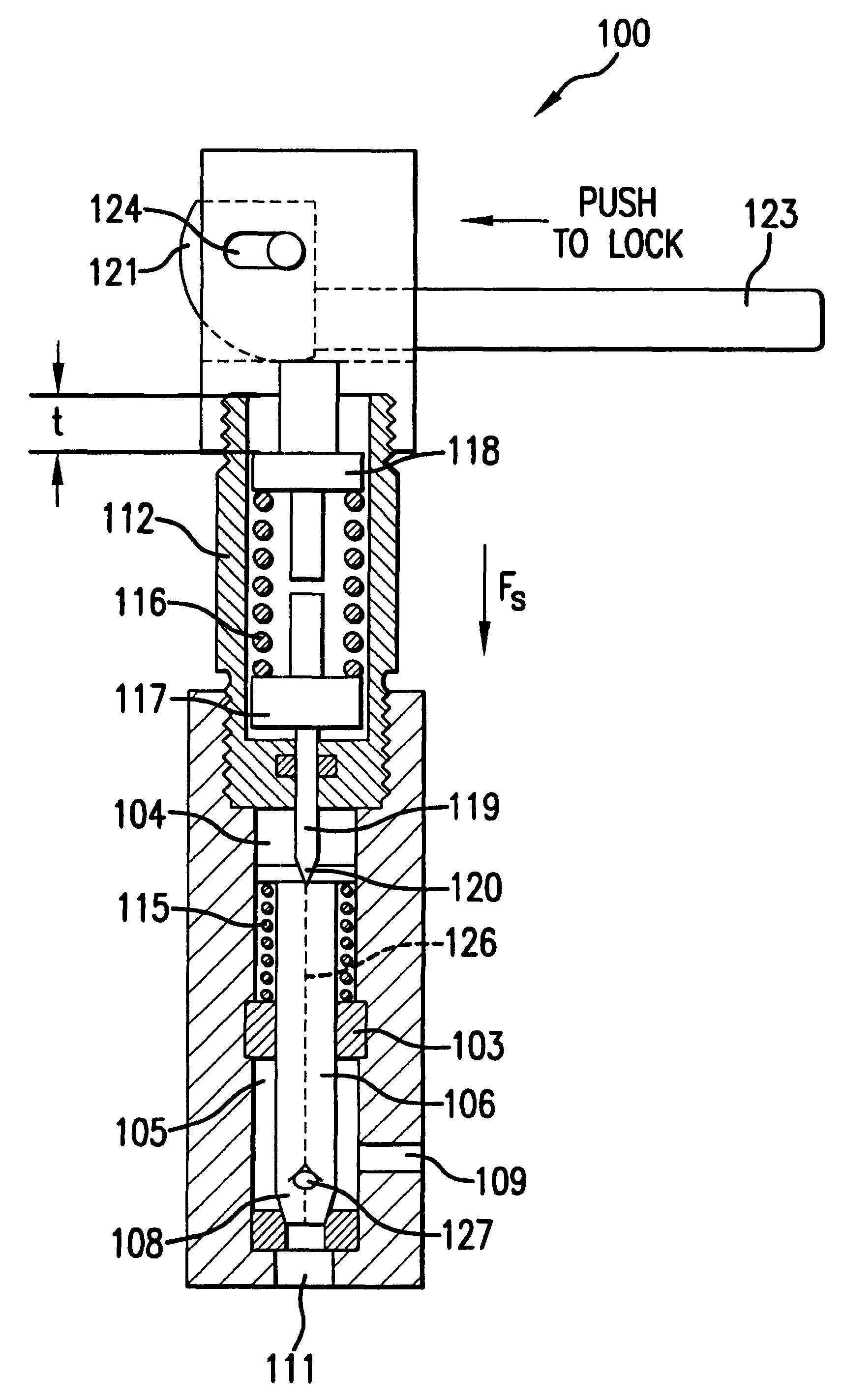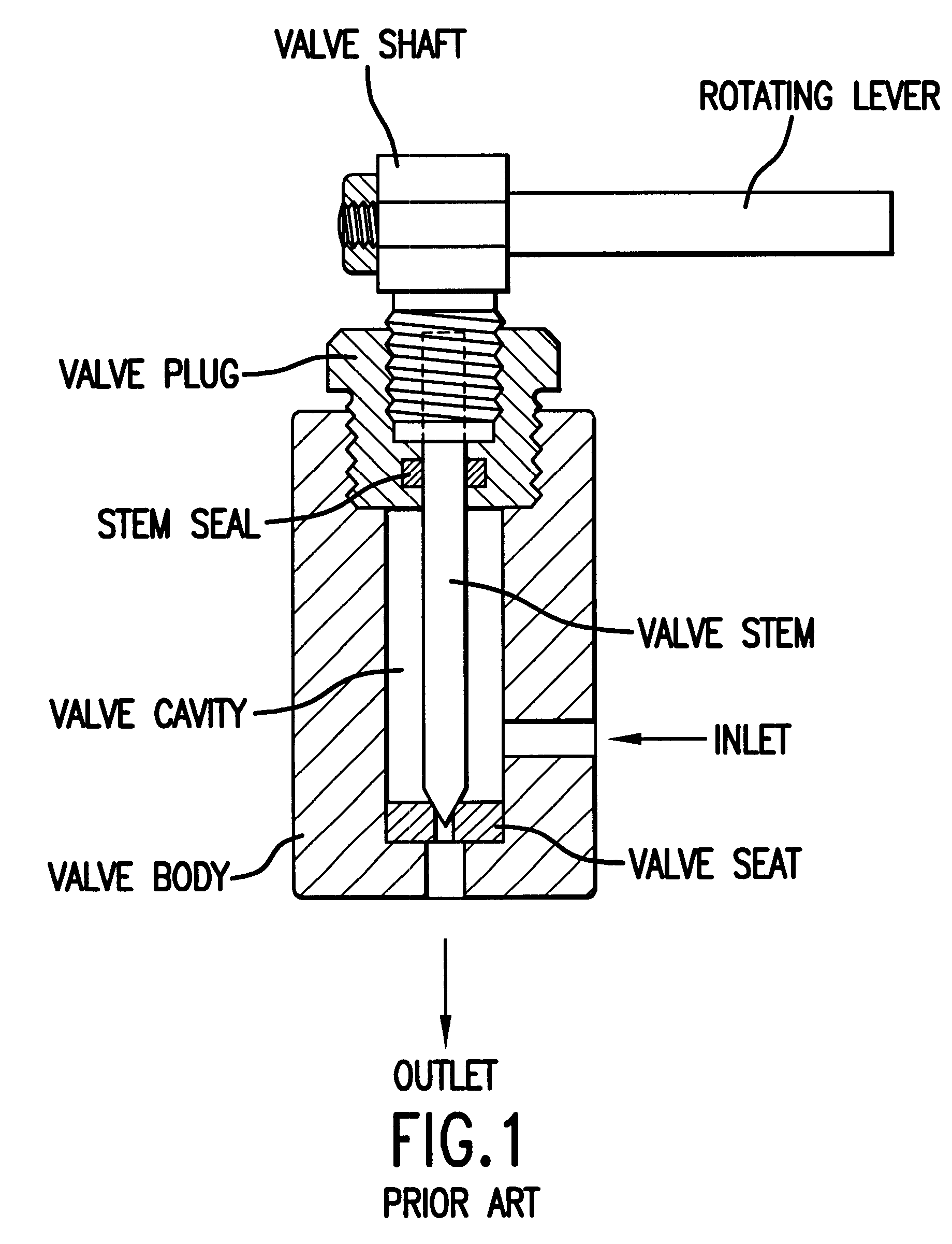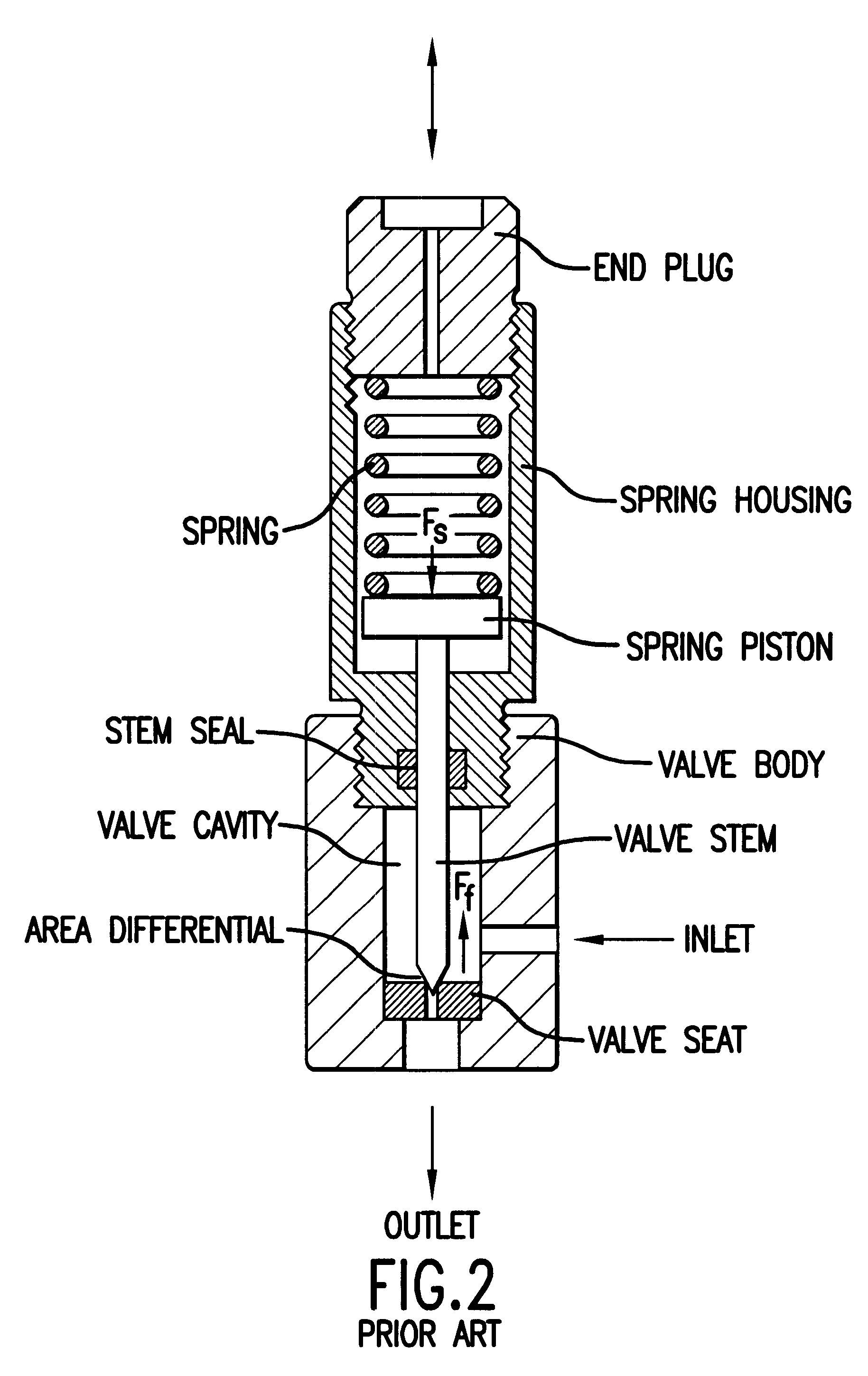On-off valves for high pressure fluids
a technology of high-pressure fluids and valve stems, applied in the field of on-off valves, can solve the problems of severe erosion of valve stems and valve ports, significant restrictions in the selection of suitable conventional valves, and significant restrictions in valve selection
- Summary
- Abstract
- Description
- Claims
- Application Information
AI Technical Summary
Benefits of technology
Problems solved by technology
Method used
Image
Examples
example
To better illustrate details of this invention, valve 300 was constructed according to the embodiment shown in FIG. 7 and illustrated in part in FIG. 8. Valve 300 had valve poppet 306 straddling bushing assembly 303. Upper end 307 of valve poppet 306 was 0.312 inches in diameter and lower end 308 was 0.250 inches in diameter and mated with a tapered center hole of valve seat 310. The contact circle or the sealing circle of valve seat 310 contacting end portion 308 was about 0.188 inches in diameter.
Valve poppet 306 had central fluid passage 326 of 0.050 inches in diameter and parallel side passage 331 of 0.020 inches in diameter. Valve actuating pin 319 was 0.078 inches in diameter and had tapered end 320 for engaging a slightly tapered entrance of passage 326. The sealing circle around pin end 320 when engaged to valve poppet 306 was about 0.060 inches in diameter. When pin 319 engaged passage 326, an annular cross-sectional surface area of about 0.0016 square inches of pin 319 was...
PUM
 Login to View More
Login to View More Abstract
Description
Claims
Application Information
 Login to View More
Login to View More - R&D
- Intellectual Property
- Life Sciences
- Materials
- Tech Scout
- Unparalleled Data Quality
- Higher Quality Content
- 60% Fewer Hallucinations
Browse by: Latest US Patents, China's latest patents, Technical Efficacy Thesaurus, Application Domain, Technology Topic, Popular Technical Reports.
© 2025 PatSnap. All rights reserved.Legal|Privacy policy|Modern Slavery Act Transparency Statement|Sitemap|About US| Contact US: help@patsnap.com



